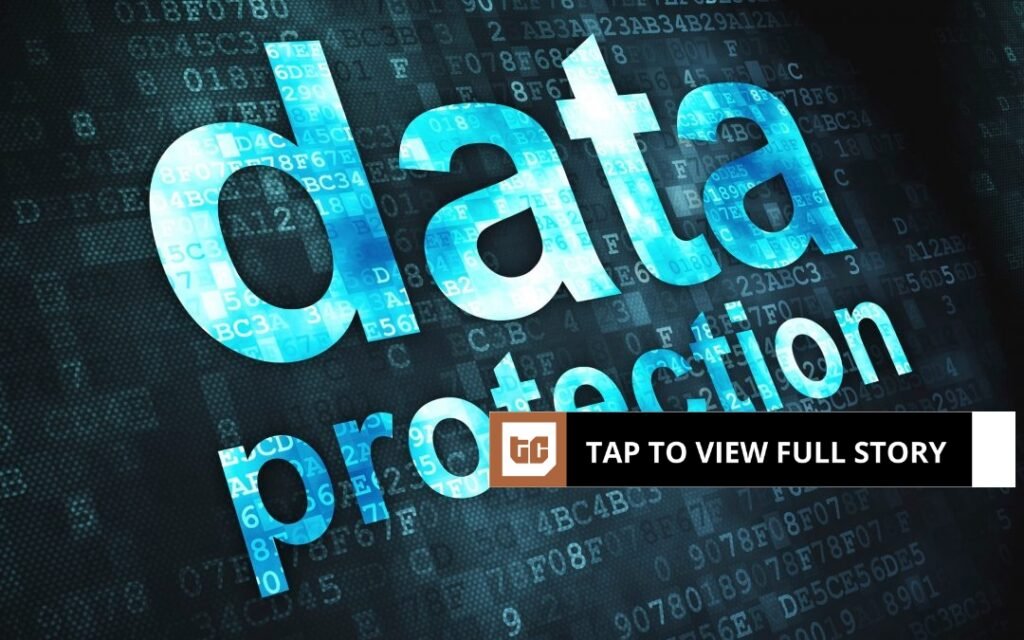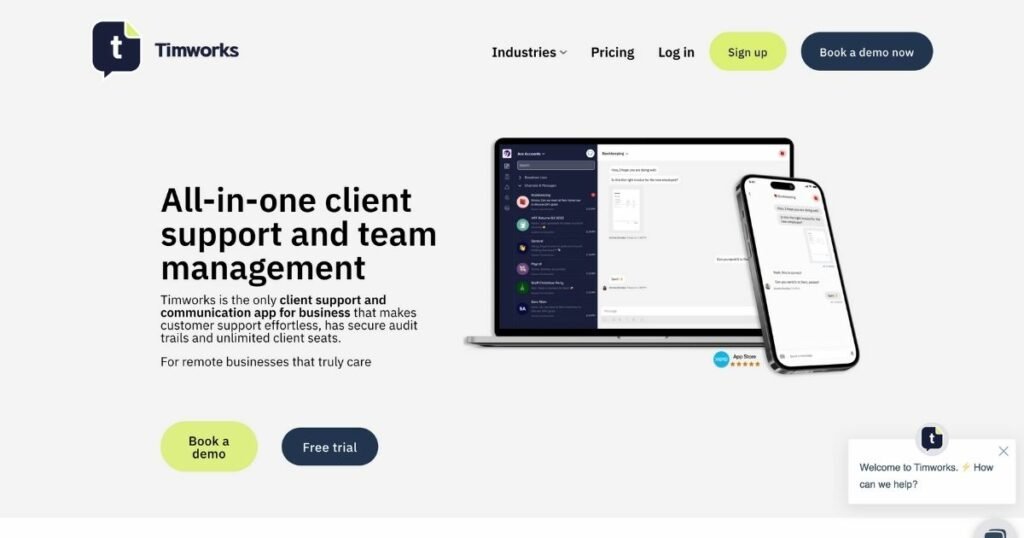Reddit got an ‘F’ in our data accessibility rankings. Facebook got an ‘A.’

We upload photos, videos, and personal stories. We share intimate details of our lives and our children’s lives.
It’s your life. It’s your personal data. You should have access to it.
Why? Because this information — your private personal data — has never been more vulnerable.
Tech giants are susceptible to data leaks. If your data isn’t accidentally put out there, these tech companies share it with so many third-parties in the name of profit it’s hard to keep track. Or, a company can always pull a , and outright delete all your data overnight thanks to an acquisition or shutdown.
If you knew how much these companies knew about you, you’d might want to step back from social media. And if you do, you shouldn’t have to leave all that data behind. It’s yours.
Thankfully, regulations like GDPR in the EU or CCPA in California are starting to put data back into users’ hands. Tech companies are now compelled to provide people with their own data. So Mashable took a look at which of these social media platforms do it best,
Image: Chesnot/Getty Images
Google / YouTube
Google probably has more of your personal data than any other tech company, but it’s the gold standard when it comes to providing you with your data.
Unlike most platforms, Google treats data requests like a feature, not just like something it’s compelled to offer. It even gave the feature a name: Google Takeout.
To access Google Takeout, simply go to your Google Account settings and click Data & Personalization. Scroll down to the “Download your data” link and you’ve reached Google Takeout, a one-stop shop for all your Google-related data requests.
We’re talking your Google Search history, YouTube videos, Google Maps locations, Android device settings, Hangouts conversations, Google Drive files, Blogger posts, Chrome bookmarks, your entire Gmail archive, the ads served to you, and more. You can even request data from shuttered Google products like Google+. Everything is easy to access, too. For example, your Gmail archive can simply be opened by your computer’s mail application.
Not only can you export all that and more, you can customize exactly what services you want in your data request a la carte. Those aren’t your only choices either. Users can decide if they want everything compiled into a ZIP or TGZ file and what the max file size for each should be. Google will then create as many files as it needs, without going over the 1GB to 50GB limit you set for each.
And there are scheduled exports! Perhaps what really sets Google Takeout apart from the rest is you can set a one-time archive or have Google create a new data export every two months for a year. You can also manually request as many automatic exports as you’d like. There’s no limit.
Of course, if you look around online, there are complaints about Google Takeout. Sometimes a ZIP file is corrupted or photos are exported without their metadata. But it appears that just requesting a new data archive solves some, if not all, of the issues.
Compared to everyone else, very few platforms come close to how easy Google makes the process.
Grade: A+
Image: Omar Marques/SOPA Images/LightRocket via Getty Images
The world’s largest social network, Facebook, had its fair of over the years. So, if you want to collect your data and split, Mark Zuckerberg at least makes it extremely easy for you.
The option to request and can be found under Your Facebook Information under settings.
Facebook’s data request process is second only to Google. Users can request all of their data or select exactly what they want in their export: posts, photos and videos, comments, a list of your friends, event history, messages, groups, pages, search history, and even which advertisers have collected your information.
One feature unique to Facebook’s data request is the ability to select the date range of the data you want to export, in case you only need the information from a specific timeframe. Users can also pick if they want an HTML or JSON export, and choose the quality of the media to minimize the size of the export.
The advertiser information is extremely fascinating. Facebook literally provides you with a list of every one of its advertisers that collected your data or got it from a third party. It even shows you every ad you’ve interacted with on the platform.
Another incredible datapoint: Facebook provides users with a link to every post, comment, and page that they’ve interacted with.
Facebook could still take a page from Google when it comes to its other products, though. Google Takeout provides the ability to request data from all of the company’s services. Being that Facebook owns Instagram and WhatsApp, it would great to be able to export data from all three products on one page.
Grade: A
Image: Thomas Trutschel/Photothek via Getty Images
LinkedIn provides another great model of how data requests should be done.
If you’re looking to export your LinkedIn data, just click on Settings and Privacy under your account menu. Under the privacy tab, scroll down to the section labeled “Getting a copy of your data.” LinkedIn provides users with an option to download a complete archive of their data or just download some of it section by section, much like Google Takeout.
If you choose the full archive export, LinkedIn gets to work right away, saying it will send you a download link within 10 minutes containing CSV files with information like your profile, first-degree connections, resume, and full inbox. When I requested my data, it took a lot longer than 10 minutes, but waiting a few hours wasn’t so bad.
Following that, the platform will send you a second link within 24 hours containing , like your account information, comments, photos, likes, search history, shares, and even the ads you’ve clicked on.
I’m not the heaviest LinkedIn user but from what I received in my data request, I’m impressed.
Grade: A
Image: Aytac Unal/Anadolu Agency/Getty Images
As a hardcore Twitter user, I was very impressed with how quickly the platform compiled my data request. Tens of thousands of tweets, thousands of media files, and all of the other internal data connected to my account took no more than 20 minutes to put together.
The Twitter request package contains a myriad of data including account information, full tweet archive, uploaded media archive, “Like” archive, following and follower lists, DM conversation history, advertiser data, and more.
One-upping Facebook, Twitter doesn’t just provide you with a link to tweets that you liked, it also shows you the actual text of each liked tweet.
Twitter provides a ZIP containing JSON files, but I feel like HTML (as Facebook provides) would be better suited for this information. For example, your followers are listed by their numerical user ID, not their username. Twitter does provide a link to their profile, so it’s easy to figure out which user is which, but it’s not a clickable link like it would be in an HTML file.
Also, the DM history just lists the Twitter user ID, making it nearly impossible to tell who you were having a chat with.
All in all, Twitter loses the most points for removing a feature. The microblogging service used to offer users a Twitter template filled with all their tweets that could easily be uploaded to a host service, providing users with a public, self-hosted version of their Twitter account. Here’s hoping Twitter one day brings it back.
Grade: B+
Image: Chesnot/Getty Images
Snapchat
Even though snaps are ephemeral, the platform still allows users to request data whenever they like.
Unlike most of the other platforms on this list, Snapchat is completely mobile. However, its tab forwards users to a mobile-friendly website. On the site, Snapchat details what data is available to check out from right within the app. It also runs down what would be included in a downloadable Snapchat data request: account information, login history, recent snap history and chat history, location and search history, friends list, and more.
The downloadable zip file contains easy-to-read HTML files. Most useful is a file listing links to download all of your saved Memories. In my opinion, this is infinitely easier than going through these in the mobile app and downloading each locally. At the same time, Snapchat could have just included the media itself in the ZIP file and saved its users the extra steps.
Grade: B
Image: Chesnot/Getty Images
The most popular messaging app in the world, WhatsApp, does give users fairly easy access to their data. After all, it’s owned by Facebook. However, there’s a small catch.
Users can request their data in the Settin
Be the first to write a comment.


















